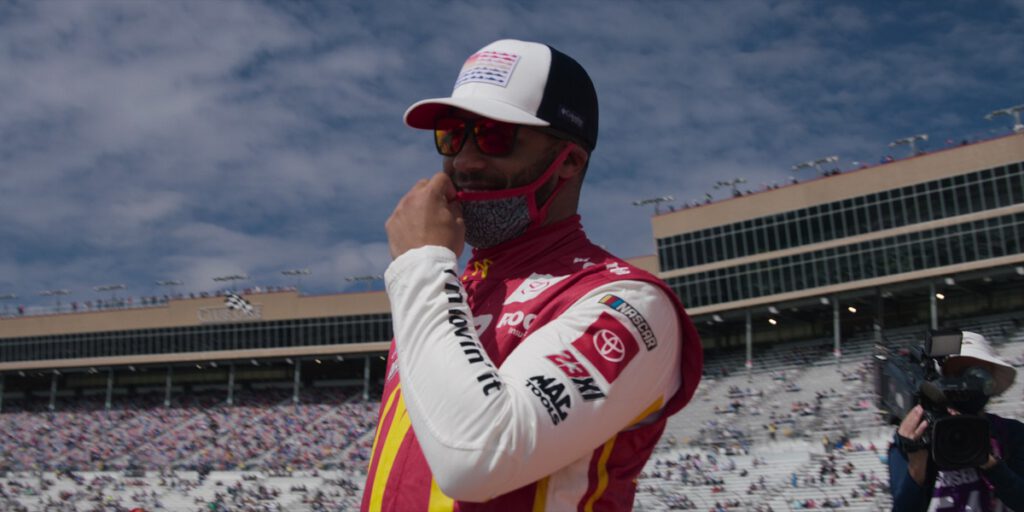Do you know the name Bubba Wallace? In October, he became the first Black driver to win a Cup Series race in almost six decades. He feels like a public figure on the precipice of major, household-name success, but a lot of readers also associate him with “the noose.” In June 2020, at the height of conversations around racial issues in the country, reports circulated that a rope fashioned like a noose was found in Wallace’s garage at Talladega. “RACE: Bubba Wallace,” dropping all six episodes on Netflix tomorrow, offers new insight into this incident, Wallace’s unexpected role as a social leader in a sport that doesn’t take kindly to upheaval, his battles with mental illness, and detailed looks at some of the most important events of his career. It’s a series that undeniably drifts into hagiography and has a frustrating habit of raising interesting topics only to push the gas medal and move on. However, it gave me a greater respect for Wallace as a person and as a driver, presenting the difficulties of his sport in a way I haven’t really seen before. There’s a physical difficulty to winning a NASCAR race, but the best aspects of “RACE” reveal how much, like all sports, it can be a mental challenge as well.
“RACE: Bubba Wallace” really centers 2021, a year of COVID and controversy. Wallace has already gone from someone who didn’t talk much about race or injustice to a major voice on the subject. Flashbacks reveal this journey, including his CNN declaration that Confederate flags need to be banned from all NASCAR events and the noose incident, which still makes Wallace emotional. If you think that the noose was just a misunderstanding or, worse, a plant, because NASCAR determined that it was a door pull and not a threat, watch at least that segment on this show. You may have a new take on it.

In 2021, Wallace joined 23XI racing, co-owned by Michael Jordan, who is absent and could have been a major voice here as an interview subject given how he’s avoided discussing racial issues in his role as an influential athlete, and fellow driver Denny Hamlin, who is a prominent interview subject. The producers keep the interviews tight, letting Wallace tell most of his own story with a few insights from collaborators and then the bigger picture commentary from people like Jemele Hill, Michael Strahan, and W. Kamau Bell, all of whom I could have actually used more of. There are times when “RACE” feels a little too stuck in Wallace’s own clubhouse—his delightful mother is a major interview subject—when it could have been stronger with the opinions of outsiders to give a different perspective.
I also found the history segments very informative but all too brief. Episode three unpacks the story of Wendell Scott, who became the first Black driver to win a Cup Series race in 1963 but could not stand on the podium and celebrate that win because the organizers feared a riot. I would watch a whole documentary on his story. However, “RACE” sometimes seems more interested in what happens on the actual speedway than the role Wallace plays as the fourth Black driver in the history of the sport. While I’m not sure spending so much time on actual races benefits the overall project, I do have to admit to now understanding some aspects of NASCAR more than I did before and having more respect for the art of it. The producers here very expertly reveal how quick decisions, both major and minor, along with a great deal of good/bad luck, can impact a race.
Wallace is an easy athlete to root for, and I appreciate his willingness to speak about depression, anxiety, and the pressure he’s under. Until about a decade ago, there was still this macho nonsense wherein athletes had to be viewed as flawless superheroes. Wallace isn’t afraid to admit how hard all of this, both behind the wheel and when it comes to being a public figure who has to take constant vitriol from a fan base for a sport that’s built on a foundation of racism. The best aspects of “RACE” reveal how its subject is always making difficult decisions to advance not just his career but the future of his sport, even when he’s nowhere near his car.
Whole series screened for review.












